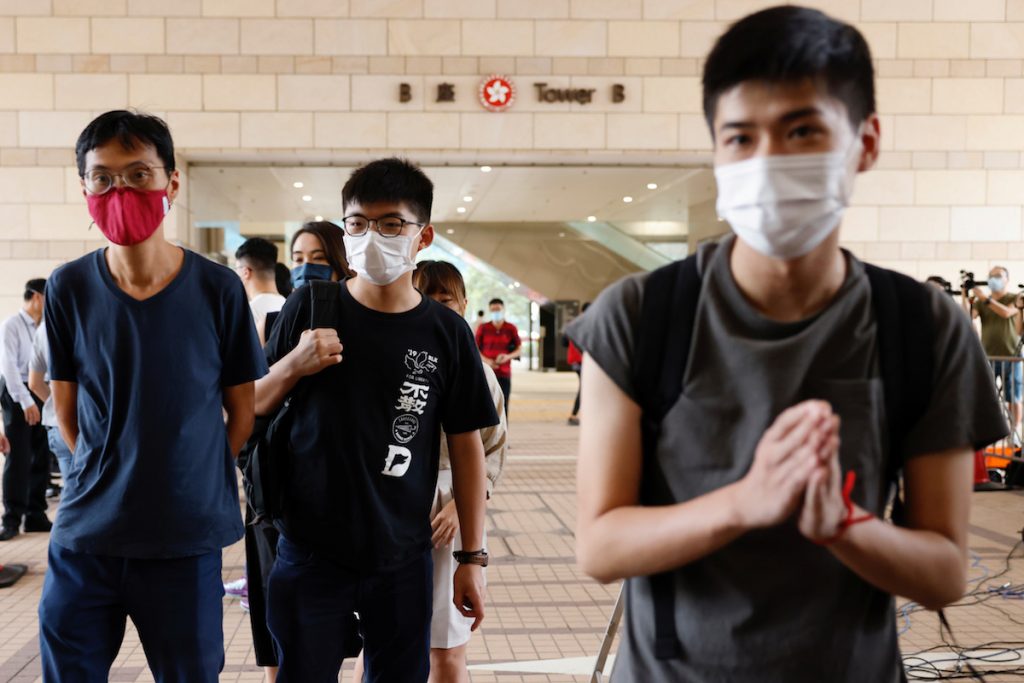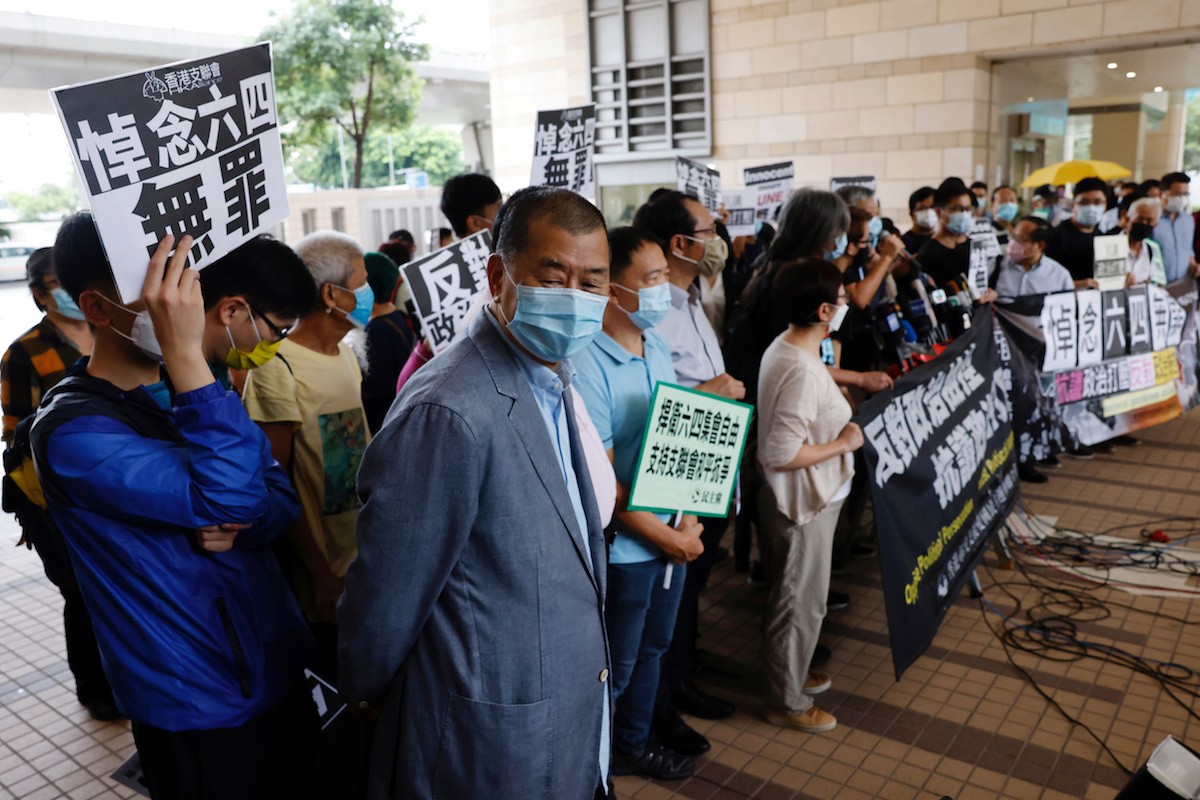Two dozen Hong Kong pro-democracy activists appeared to hear charges of participating in an illegal assembly over a June 4 vigil commemorating the crackdown on protesters in and around Beijing’s Tiananmen Square in 1989.
It was the first time the vigil had been banned in semiautonomous Hong Kong, with police citing coronavirus restrictions on group gatherings as the reason for not granting permission.
Still, tens of thousands of people lit candles across the city in what was largely a peaceful event, bar a brief skirmish with riot police in one neighborhood.
“We insist that condemning the Tiananmen massacre is no crime,” said Lee Cheuk-yan, who organizes the annual vigil in Hong Kong and is among those facing charges, before entering the court on Sept. 15. “We will continue the struggle.”
The 26 activists facing charges included Joshua Wong, media tycoon Jimmy Lai and Nathan Law, who left Hong Kong after China imposed a sweeping national security law on the Asian financial hub in June.
Another activist, Sunny Cheung, who planned to run in a since-postponed election for the city’s legislature, was also absent. Cheung has been the subject of speculation he may have also fled Hong Kong. Prosecutors said he has not been in the city since Aug. 14, according to immigration authorities.
The June 4 anniversary struck an especially sensitive nerve in the former British colony this year, falling just as Beijing prepared to introduce the new security legislation, which punishes anything China sees as subversion, secession, terrorism or collusion with foreign forces with up to life in prison.

Pro-democracy activists see the new legislation as the latest attempt by Beijing to encroach on Hong Kong’s freedoms. Its supporters say the law will bring stability after a year of unrest.
June 4 commemorations are banned in mainland China, but Hong Kong traditionally held the largest vigils globally every year, having been promised certain freedoms when it returned to Chinese rule in 1997, including rights of expression and assembly.
China has never provided a full account of the 1989 violence. The death toll given by officials days later was about 300, most of them soldiers, but rights groups and witnesses say thousands of people may have died.







